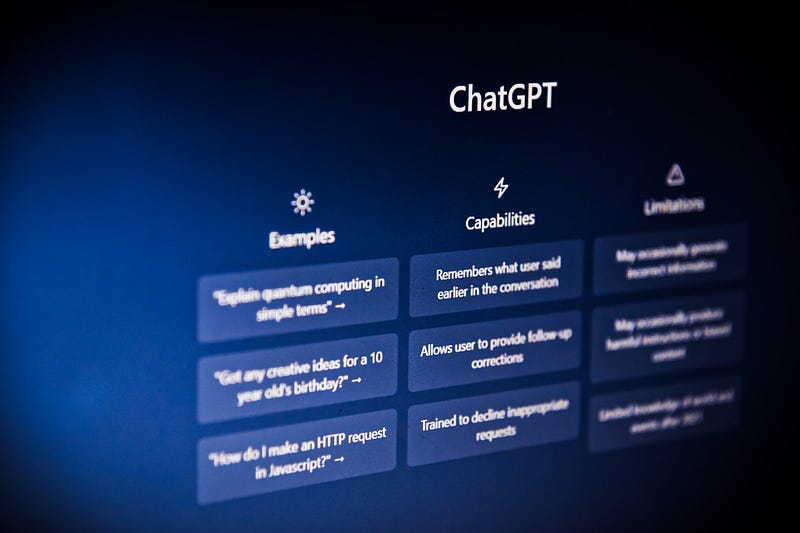Taking the Fight Against Cybercrime to the Next Level with AI and Machine Learning
By: Mack Jackson Jr.
By: Mack Jackson Jr.
Cybersecurity threats continue to be a big problem for people, businesses, and governments all over the world in this age of technology. Traditional security methods aren’t enough to keep sensitive data and networks safe from growing cyber threats. As a result, Artificial Intelligence (AI) and Machine Learning (ML) have emerged as critical technologies in the fight against cyber threats.
AI is a technology that mimics how people think, while machine learning is about teaching machines to learn from data and get better over time. AI has numerous applications across various fields, including finance, healthcare, and cybersecurity. In cybersecurity, AI can enhance incident response, malware detection, and other aspects of cybersecurity.
One of the most significant applications of ML in cybersecurity is anomaly detection, which involves identifying unusual patterns in network activity. This step could be anything from strange network activity to users logging in from unknown locations. Predictive analytics is used to anticipate future events, such as when a data breach might occur or when certain behaviors are likely to result in an attack.
ChatGPT is one form of AI that is gaining traction in the mainstream. The artificial intelligence chatbot ChatGPT went live in November 2022 and has since taken the Internet by force. ChatGPT is based on the GPT-3 family of large AI language models, which is known for its ability to understand and create natural language. OpenAI, a leader in artificial intelligence research and development, developed the technology.
A crucial feature of ChatGPT is fine-tuning, a method of transfer learning. ChatGPT has been trained using supervised and reinforcement learning methods on massive data. Thanks to its extensive training, ChatGPT can now comprehend and respond to various queries and conversations in a human-like way, making it a valuable tool for businesses and individuals.
What sets ChatGPT apart from other chatbots on the market is its capacity to learn from experience. It can learn from and adjust to new information by analyzing and making sense of the data it gets. This technology allows ChatGPT to respond to inquiries uniquely to each user, which can increase user satisfaction and participation.
ChatGPT’s advanced features and adaptability make it ideal for companies of various sizes and fields. ChatGPT can be adapted to meet the needs of any industry, from customer support and sales to marketing and beyond.
Microsoft has created its AI model to merge OpenAI’s GPT models with the Bing database, ranking, and response search results. This model is called a GPT model, and it describes the technology. This Ai model ensures that the training events for ChatGPT utilize the most up-to-date resources and data possible, coming as close to real-time as is currently feasible.
ChatGPT is an excellent AI chatbot that could drastically alter our communication with machines. Its adaptability, versatility, and high level of customization make it an invaluable resource for businesses and individuals.
However, there are existing vulnerabilities in ChatGPT infrastructure that are raising concerns. Since ChatGPT only uses human data collected from the Internet for its learning, phishing has been an ongoing worry for the service. Experts in cyber security say that the AI chatbot makes it simple for hackers to craft phishing codes and emails and launch precise assaults.
Threat actors can use ChatGPT to quickly and easily craft phishing codes, emails, and infection chains that can simultaneously attack hundreds of machines. Concerns like these shouldn’t be surprising since any Internet-based product with a user interface through which people provide information is vulnerable to manipulation and can be used to deceive users into giving up private information.
The ChatGPT’s ability to create numerous scripts with slight wording variations is cause for concern. The chatbot already has the ability to compose emails that are difficult to tell apart from those written by humans. The system can generate website posts, reviews, press releases, and YouTube video scripts, providing the threat actors with everything he needs to launch a successful phishing scam.
The emergence of artificial intelligence (AI) and machine learning (ML) has created new opportunities for organizations to improve their cybersecurity. With AI systems such as ChatGPT, businesses can use the machine to create repetitive tasks. ChatGPT’s ability to automate routine tasks also frees security personnel to focus on more complex threats.
As the volume of data generated increases, cyber threats continue to rise. AI and ML can be critical in improving cybersecurity by analyzing vast amounts of data in real-time, identifying patterns, and detecting anomalies that may indicate a potential threat. Adding security measures to an AI system like ChatGPT’s advanced features can help the system predict bad actors by analyzing and interpreting data, learning and adapting to new information, and keeping businesses’ data assets safe. ChatGPT can provide more personalized and accurate responses to queries, improving the speed and efficiency of modern-day business activities.
However, it’s important to note that bad actors can use AI and ML to gain unauthorized access to sensitive information. Therefore, businesses must remain vigilant and protect their systems against cyber threats. It’s up to companies to implement robust cybersecurity measures and ensure that they keep up-to-date with advancements in AI and ML technologies.
In conclusion, ChatGPT and other AI technologies have become essential organizational tools. Implementing AI and ML technologies in cybersecurity strategies can help businesses protect sensitive data and networks more effectively. However, it’s crucial to remain vigilant and stay informed about the latest developments in these fields to maximize the benefits of these technologies. With proper cybersecurity planning capabilities, businesses can proactively mitigate potential cyber threats and keep their systems safe and secure.
About the Author — Mack Jackson Jr
Mack Jackson Jr. is the CEO of Vanderson Cyber Group. In the age of global cyber threats, Vanderson Cyber Group helps businesses protect themselves from cyberattacks by teaching them cybersecurity awareness. Vanderson Cyber Group uses state-of-the-art practices in security policy development and comprehensive employee training. One of the essential services is phishing simulation and compliance training, which keep employees up-to-date on the threat landscape. Vanderson Cyber Group also provides resources for cyber insurance, managed services, and legal representation. For more information: http://www.vandersoncybergroup.com







